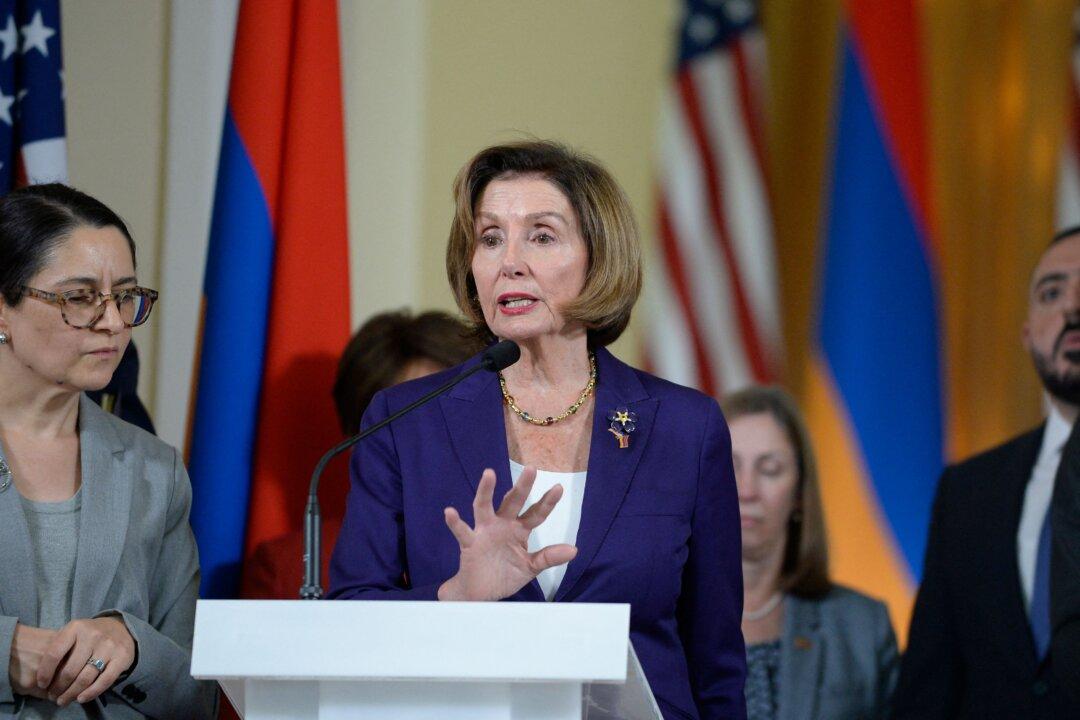House Speaker Nancy Pelosi (D-Calif.) and a delegation of lawmakers visited Armenia in the midst of fresh clashes with neighboring Azerbaijan that have killed more than 200 troops, according to U.S. officials.
While speaking in Yerevan, Armenia, Pelosi condemned the “illegal and deadly attacks by Azerbaijan on Armenian territory” that triggered border fighting.





